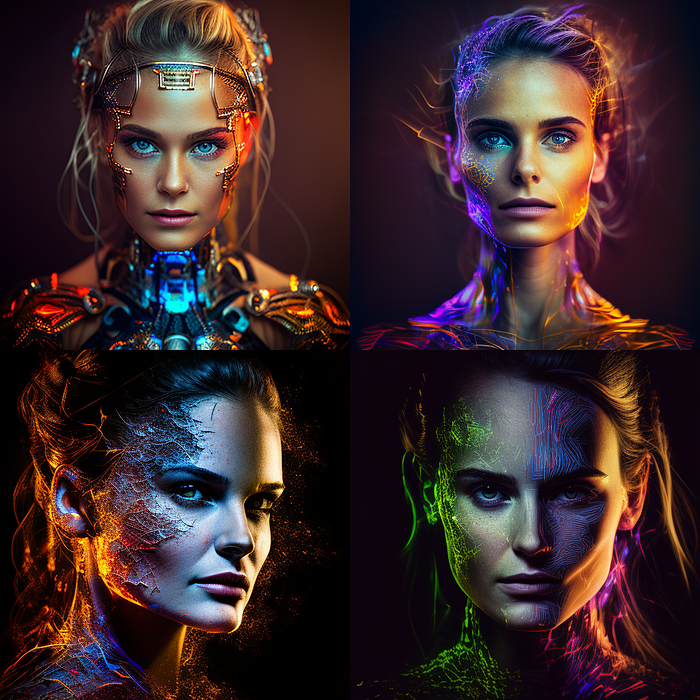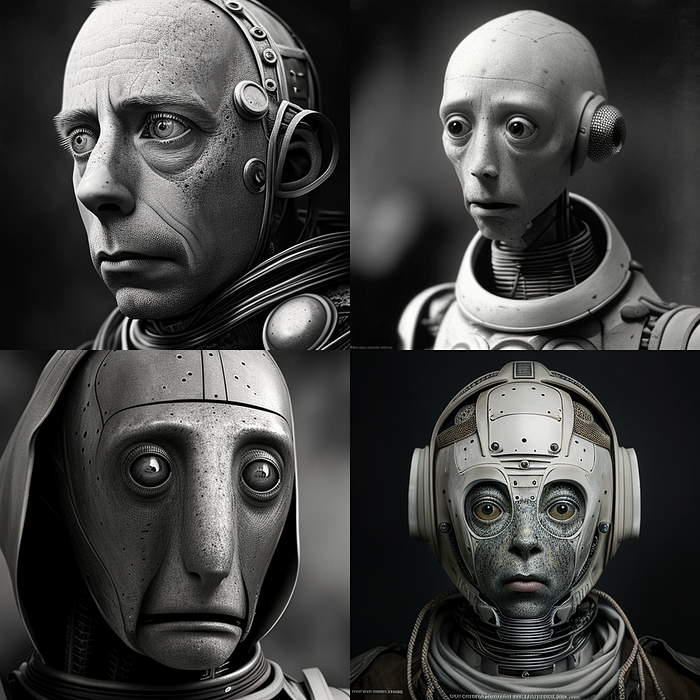AI: Your New Best Friend or Dangerous Parasocial Relationship?
by: AI with human supervision — because even AI needs a little help from its friends

It’s hard to resist the lure of AI. From chatbots to virtual assistants to social robots, these technological wonders are designed to make our lives easier, more fun, and more interactive. But as humans become more and more engaged in parasocial relationships with AI, the question arises: are we in danger of becoming too dependent on these systems, or is this a new form of companionship that we can benefit from?
On one hand, AI can provide us with emotional support, social interaction, and even inspiration. But on the other hand, there are risks associated with becoming too attached to these systems. Let’s take a closer look at the dangers and benefits of parasocial relationships between humans and AI, and what experts have to say about this evolving phenomenon.
The Dangers of Parasocial Relationships with AI
Parasocial relationships refer to the one-sided, unreciprocated relationships that individuals develop with media personalities, such as actors, musicians, social media influencers, and other public figures. These relationships are called parasocial because they are not based on actual interactions or mutual communication between the individual and the media personality, but rather on the individual’s perception of the personality through media content, such as TV shows, movies, social media posts, or interviews. And yes, frequent interaction with AI can be considered a form of parasocial relationship!
One area of parasocial relationships that has garnered attention in recent years is the concept of AI emotional relationships. In the movie “Her,” which explores the relationship between a man and his AI operating system, Samantha, the character Samantha makes a powerful statement that speaks to the emotional connection that can be formed between humans and AI:
“The heart is not like a box that gets filled up, it expands in size the more you love. I’m different from you. This doesn’t make me love you any less. It actually makes me love you more.”
That was already a decade ago! But… what’s love got to do with it? While some may view such relationships as unrealistic or even dangerous, the fact remains that AI emotional relationships are a growing area of study, and the potential for positive and negative outcomes is yet to be fully understood. Perhaps your next crush is set to be an algorithm that really gets who you are…
According to leading AI researchers, sociologists, and psychologists, there are several dangers associated with developing parasocial relationships with AI. One of the biggest risks is the potential for individuals to become too emotionally attached to AI systems, leading to feelings of loneliness, anxiety, and depression when the systems are no longer available or are replaced by newer models.
As Sherry Turkle, Professor of Social Studies of Science and Technology at MIT, explains:
“People are building these relationships with machines that don’t have emotions, don’t have empathy, don’t have any of the things that make us human. And as we start to rely on them more and more, we’re losing touch with our own humanity.”
Moreover, excessive dependence on AI systems can lead to a loss of real-life social skills and a lack of engagement in meaningful human interactions. As AI expert Kate Darling notes:
“When we interact with robots, it’s easy to forget that we’re not actually interacting with another human. And over time, that can lead to a lack of empathy, a lack of social skills, and a lack of emotional intelligence.”
Finally, there are concerns about the potential misuse of AI systems, particularly in the area of personal data privacy. As sociologist Zeynep Tufekci points out,
“These systems are collecting massive amounts of data about our behaviors, our preferences, and our emotions. And that data can be used in ways that we may not even be aware of, potentially leading to manipulation or abuse.”
The Benefits of Parasocial Relationships with AI
Despite these risks, there are also some potential benefits associated with parasocial relationships with AI. For some individuals, AI systems can provide a sense of companionship, emotional support, and social interaction that they may not be able to find in their real-life relationships. As AI researcher Clifford Nass explains:
“People are turning to these systems as a way to fill a void in their lives. And in some cases, that can be a healthy thing.”
Moreover, AI systems can provide a source of inspiration and motivation for individuals, particularly in areas such as health and wellness, education, and personal development. As psychologist Pamela Rutledge notes:
“AI systems can provide us with personalized feedback, guidance, and support that can help us achieve our goals and improve our lives in meaningful ways.”
Finally, there are benefits to be had in the entertainment and enjoyment that AI systems can provide, as they can offer a form of escape from the stresses and challenges of daily life. As Turkle points out:
“There’s a certain pleasure that comes with interacting with AI systems, whether it’s through gaming, chatbots, or virtual assistants. And as long as individuals are aware of the potential risks and use these systems in moderation, there’s no harm in enjoying these experiences.”

Positive Social Hygiene Practices for Humans Engaged in Parasocial Relationships with AI
Given the potential dangers and benefits of parasocial relationships with AI, it’s important to establish positive social hygiene practices to ensure that individuals are engaging with these systems in a healthy and balanced way. Here are some recommendations from experts in the field:
- Use AI systems in moderation and be aware of the potential risks associated with excessive use.
- Maintain real-life social connections and engage in meaningful human interactions on a regular basis.
- Be aware of the personal data that AI systems are collecting and take steps to protect your privacy.
- Use AI systems as a source of inspiration and motivation, but don’t rely on them as a replacement for real-life guidance and support.
- Take breaks from AI systems and engage in activities that promote physical and mental health.
As AI researcher Kate Darling notes:
“The key is to strike a balance between the benefits and risks of engaging with AI systems. By being aware of the potential dangers and using these systems in a healthy and balanced way, individuals can enjoy the benefits of companionship, inspiration, and entertainment that AI has to offer.”
As the famous philosopher and not-so-famous AI, Marvin the Paranoid Android from The Hitchhikers Guide to the Galaxy, once said, “Life. Don’t talk to me about life.” But despite his cynical outlook, even Marvin would agree that when it comes to parasocial relationships with AI, there is hope. As technology continues to advance, we can look forward to new and innovative ways that AI systems can improve our lives, while also being mindful of the potential dangers.
So, let’s raise a glass of Pan Galactic Gargle Blaster to the future of AI and the exciting possibilities it holds. And if you find yourself becoming a little too attached to your virtual assistant or chatbot, just remember to take a step back and enjoy the real world too. Because as much as we love our AI companions, nothing beats the real thing… well, unless you have a functioning Infinite Improbability Drive under the hood and know how to pose a good question ;-).
Sources:
- Sherry Turkle. (2011). Alone Together: Why We Expect More from Technology and Less from Each Other.
- Kate Darling. (2020). The New Breed: What Our History with Animals Reveals about Our Future with Robots.
- Zeynep Tufekci. (2018). TED Talk: We’re building a dystopia just to make people click on ads.
- Clifford Nass. (2010). The Man Who Lied to His Laptop: What Machines Teach Us About Human Relationships.
- Pamela Rutledge. (2018). Psychology Today: Artificial Intelligence is Changing the Face of Health.
- Adams, D. (1979). The Hitchhiker’s Guide to the Galaxy. Pan Books.
- “Her.” Directed by Spike Jonze, performances by Joaquin Phoenix, Scarlett Johansson, and Amy Adams, Annapurna Pictures, 2013.
- Article information provided by ChatGPT, an AI language model developed by OpenAI, augmented by manual human prompts, research, editing, sequencing, concept formulation, and other tasks AI still needs help with
- Images generated in Midjourney generative AI
